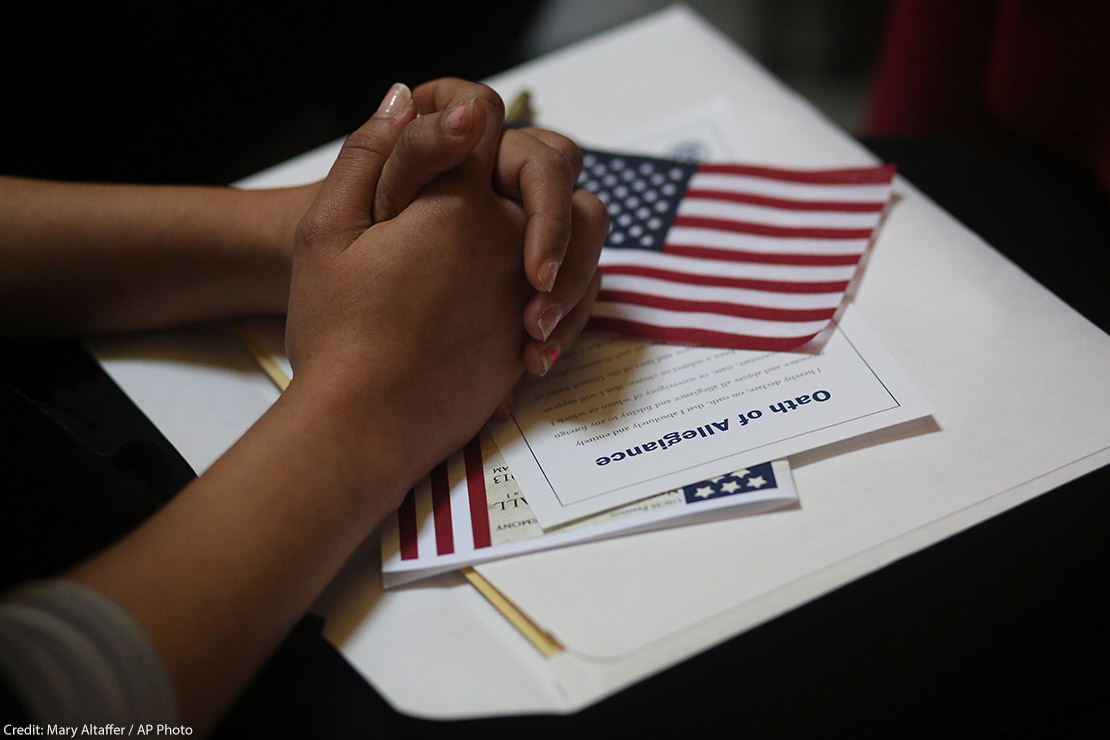
Bouarfa v. Mayorkas
Amicus Curiae Brief
A “friend of the court” or amicus, brief is filed by someone not a direct party to the case, but who has an interest in its outcome. These briefs seek to supplement the merits briefs by offering the Court additional arguments and information. Amicus briefs can be filed at the merits stage or at the certiorari stage.
What's at Stake
Whether a U.S. citizen gets a day in court to challenge the federal government’s revocation of her spouse’s immigrant visa.
Stay informed about our latest work in the courts.
By completing this form, I agree to receive occasional emails per the terms of the ACLU's privacy statement.
Summary
For many noncitizens, the road to citizenship begins when a U.S. citizen or lawful permanent resident family member files a visa petition on their behalf. That was the case for Ala’a Hamayel, whose wife, Petitioner Amina Bouarfa, a U.S. citizen, filed a visa petition on his behalf. United States Citizenship and Immigration Services (USCIS) approved Ms. Bouarfa’s visa petition, allowing her husband to live lawfully in the United States with her and their children and providing him with a pathway to citizenship. Years later, the agency revoked the visa petition, asserting that Mr. Hamayel’s prior marriage had been a sham—a conclusion based on testimony from Mr. Hamayel’s ex-wife that she later recanted. Ms. Bouarfa seeks to challenge the agency’s decision to revoke the visa petition.
This case presents the question whether visa petitioners can ask a federal court to review an agency’s decision to revoke a visa petition. Long settled Supreme Court precedent establishes that federal agency actions are presumptively reviewable by federal courts. Indeed, if the agency had denied Ms. Bouarfa’s visa petition in the first instance, everyone agrees that Ms. Bouarfa would have been able to challenge that decision in federal court. But the government argues that the decision to revoke Ms. Bouarfa’s visa petition is not reviewable because of a statute that bars federal-court review of (i) “any judgment regarding” certain enumerated forms of immigration relief and (ii) “any other decision or action” specified to be in the discretion of the agency. According to the government, clause (ii) covers the agency’s sham-marriage decision, even though that decision is not discretionary. Our brief explains why that is wrong, and why clause (ii) applies only to discretionary decisions—not any and everything related to those decisions.
This case has potentially devastating consequences for noncitizens and their families. If the Court adopts the government’s sweeping argument, it will slam the courthouse door shut in many cases. Immigration agencies are overburdened and serious mistakes by agencies happen. Noncitizens and their families have long relied upon courts to correct those mistakes. But now, the government seeks to block federal courts from even considering whether a mistake occurred in many immigration proceedings. And, in some situations, federal courts would be precluded from reviewing even a blatant constitutional violation—such as if the agency based its decision on racial stereotyping. Immigration agencies’ decisions have life-altering consequences; noncitizens and their families deserve, at minimum, the opportunity for a fair day in court.